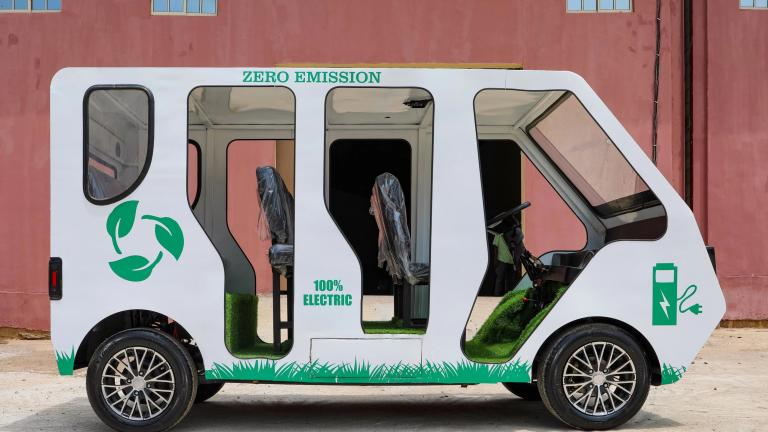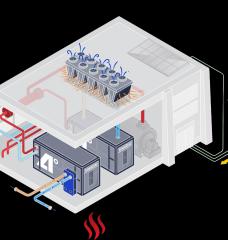
Nigerians have become accustomed to long lines for gasoline and wild fluctuations in bus fares. Though the country is Africa’s largest producer of oil, its residents don’t benefit from a steady supply.
Mustapha Gajibo, 30, is doing what he can to alleviate the problem: his startup, Phoenix Renewables Limited, is launching a homegrown electric-vehicle industry in the northeastern city of Maiduguri.
Gajibo dropped out of university in his third year to run it. His first project was converting the internal-combustion engines of commonly used vehicles in the city to electric versions. He focused on two types of vehicles that residents often pay to ride: seven-seat minibuses and the motorized tricycles known as kekes.
He faced skepticism at first: limited power charging infrastructure has constrained the adoption of electric vehicles in the region. “Many people don’t believe that electric mobility is possible and commercially viable in the city of Maiduguri,” Gajibo says. But his electrification scheme has been gaining traction. The company now maintains a fleet of a dozen electric minibuses that can cover a distance of 150 kilometers on a charge and cost about $1.50 to power to full capacity.






